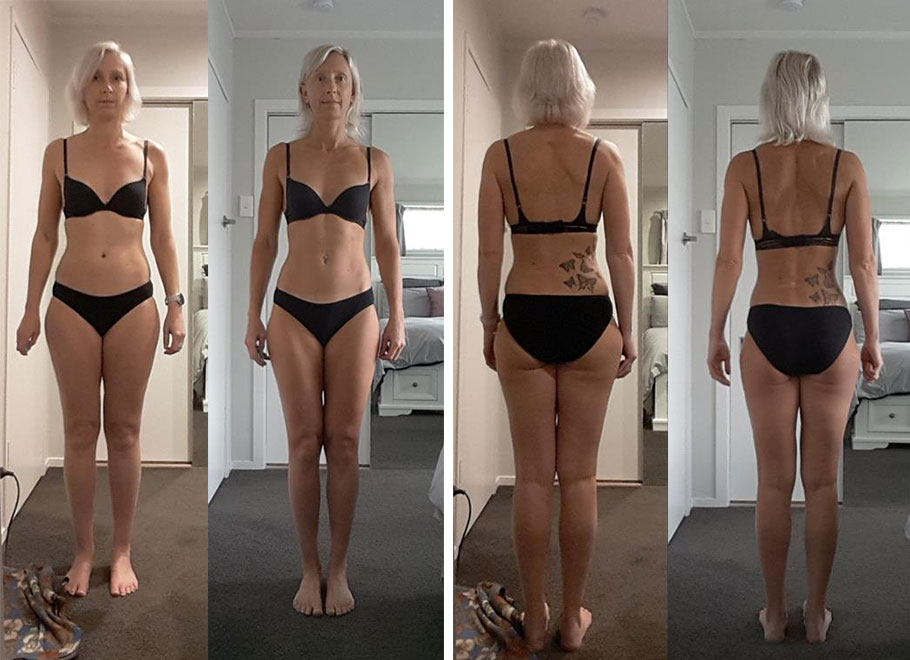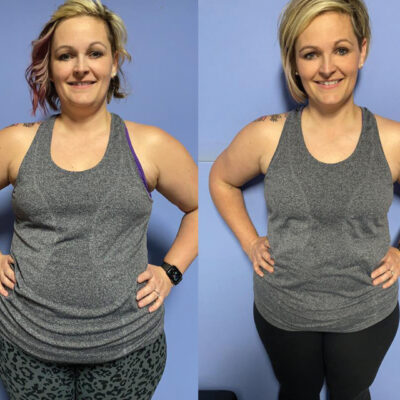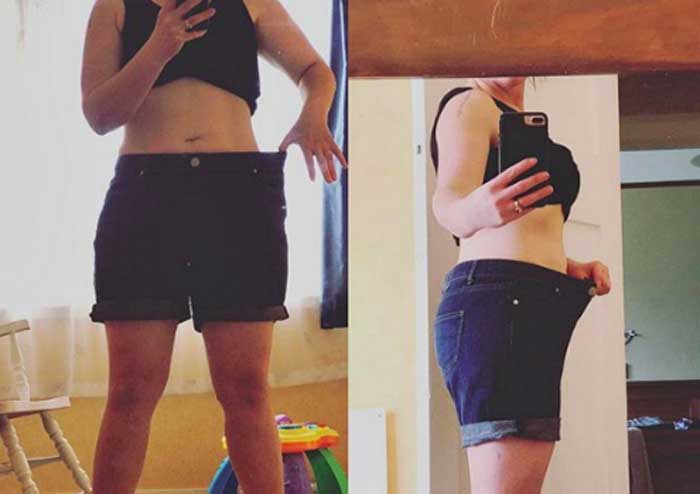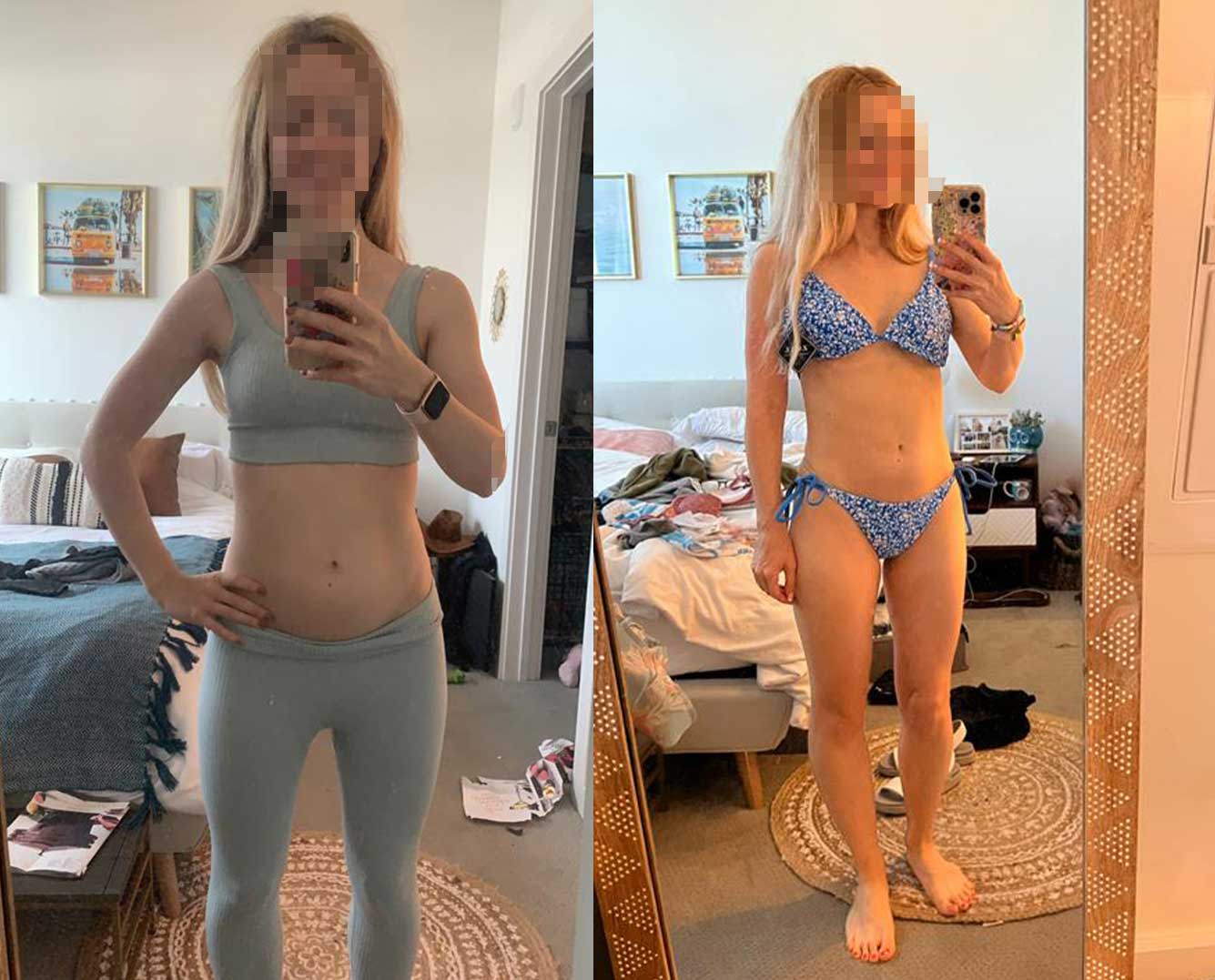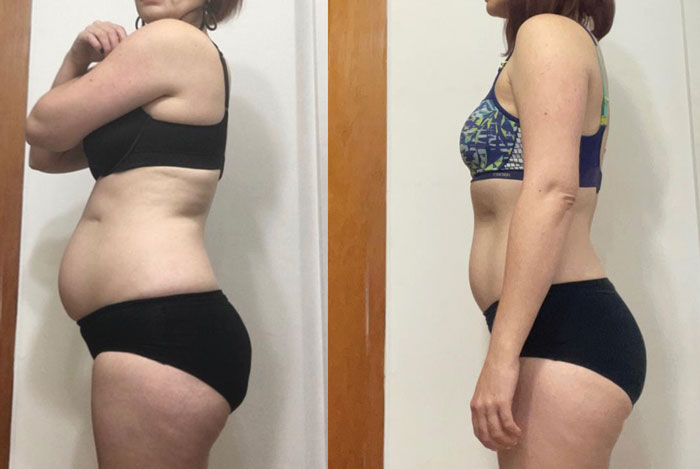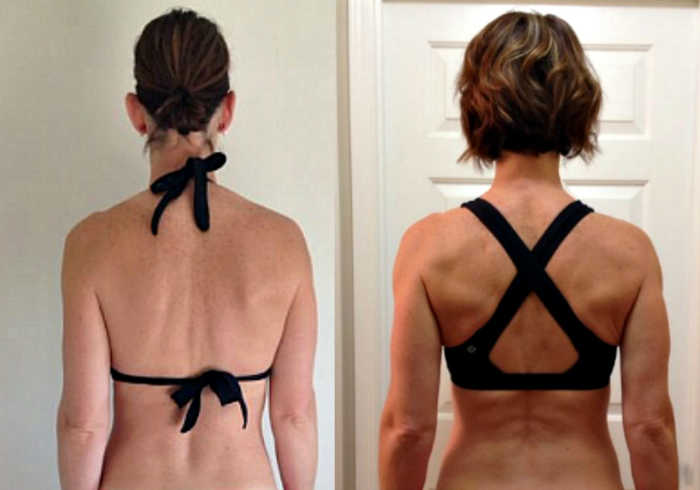Here’s what you need to know
1. Too much cardio can be destructive for your metabolism, your muscle mass and your energy. It should be used strategically when trying to lose weight.
2. Fasted cardio can be problematic and may even contribute to weight gain around your belly if you tend to be overstressed and tired from a busy lifestyle.
3. Focus on quality not quantity of exercise. Stop beating up your body. Treat it with care, rest and good nutrition and you’ll be surprised at the results you get.
Use Cardio Strategically When Trying to Lose Weight
I hear it too often. A woman decides she hasn’t been losing weight fast enough so she wants to start running everyday on top of her regular training program. Or her personal trainer advises her to get up before work everyday for an hour of fasted cardio. Then hit the gym again in the afternoon for either more cardio or some weights.
Often these women plateau. No matter how much cardio they do, they aren’t getting the body they want.
Sound familiar?
Cardio is an important tool for weight loss. But it’s also destructive if used improperly.
Too much cardio can be destructive for your metabolism, your muscle mass and your energy. It should be used strategically when trying to lose weight. This means that you start with the minimal dose possible to get results. When it comes to diet and exercise for weight loss, finding your minimal dose is key to avoiding plateaus and rebounds.
Don’t assume your personal trainer knows how to do this. In my experience, some of the worst advice is coming from well-intentioned, but misinformed personal trainers.
Should You Do Fasted Cardio?
Probably not. Here’s why.
Fasted cardio means you do cardio first thing in the morning before consuming any solid food. The idea is that your insulin is low when you wake up, so your body will burn fat instead of the nutrients from what you just ate if you had breakfast.
Sounds good right? Unfortunately, for the average stressed out woman who runs herself into the ground day after day trying to be all and accomplish all, fasted cardio may increase cortisol, fatigue and burn out.
The problem is if you don’t eat when you wake up, your cortisol, which is high on waking, remains high. Cardio increases cortisol output even more.
High cortisol is a real problem for women trying to lose weight. Dieting itself is a stress on the body and adding in fasted cardio only increases that stress. When you are chronically stressed out your body is going to fight it’s hardest against weight loss.
Studies show that when you are stressed, you burn less calories and are more likely to store belly fat. In studies with identical twins, one that is more stressed than the other and both eating the same amount of calories, the stressed twin puts on more visceral (belly) fat. For the other twin more energy goes to fuel muscles and brain. So it’s not just about calories!
Increased cortisol can also negatively impact muscle mass. When you are trying to lose weight, you’ll probably lose some muscle mass along with fat because it’s impossible to only lose fat without losing muscle. But doing too much cardio puts you at risk for a greater loss of muscle mass (especially if you are dieting). Muscle is metabolically active tissue which means it needs more calories. Put simply – when you lose muscle you burn less calories on a daily basis.
Remember, just because you’ve heard about the benefits of fasting or you know someone who loves it, women tend to be more susceptible to the stress caused by fasting than men. So that’s why while fasting may work well for your partner, it might leave you feeling absolutely wrecked and cranky.
What to do instead:
If you want to do fasted cardio in the morning, keep it to a minimum. Stick with just a couple of shorter low intensity sessions each week. Stay in bed the rest of the week. Extra sleep will do wonders for weight loss.
If you don’t do your fasted cardio immediately upon waking, for example, if you do cardio 1 to 2 hours later, at a minimum have a small high protein snack like a protein shake when you get up. The protein is going to help spare those muscles. Then eat breakfast after training.
If you are doing fasted cardio and you find yourself more tired than normal later in the day (or grumpier and/or hungrier), it’s a sign that fasted cardio probably isn’t working for you. Adding in a small snack before cardio often helps with fatigue later in the day. In the least, make sure you refuel with a balanced breakfast within about an hour of training.
How Much Cardio Should You Do?
If you like cardio, then you should do it. But if you aren’t getting results, then adding longer and longer sessions for the sole reason of trying bust a plateau is not a good idea. The longer your cardio session is and the more cardio you do – the more stressful it is for your body.
Don’t keep doing the same thing over and over again and expect results.
How much is too much?
It depends. Every woman is different. But if you’ve hit a wall, feel more fatigued, or have more cravings and hunger than normal, you may want to consider your cardio sessions. If you’ve hit a plateau with your weight and you are already doing regular cardio, it’s unlikely more cardio will get your weight moving again. In my experience, it’s more effective to break plateaus using calorie and macronutrient tracking.
There’s no definitive answer. It’s about listening to your body and finding your minimal dose from the outset so you don’t plateau.
What to do instead:
Address your nutrition first. Cardio is not the antidote to poor eating. Lift weights 3 to 4 times per week at a minimum. Cardio is great if you enjoy it but don’t make it your primary means of losing weight and changing your body because I can guarantee you’ll get stuck and be disappointed with the results.
Most women I work with are already overstressed, so I recommend any additional cardio comes from enjoyable, leisure activities like walking and biking. Walking outside is one of the best ways to burn extra calories but also lower stress which is a win-win for weight loss.
If you are a runner who enjoys the “mind clearing” benefits of getting out for a run, then by all means, run. Just don’t run solely to burn calories and lose weight. And don’t run everyday. Running, especially for longer periods of time, can increase cortisol even though you find it “relaxing.”
What this means for you
There’s nothing inherently wrong with cardio. But doing too much is potentially detrimental, especially if you tend to already be overstressed and tired from everything else going on in your life.
When you diet and exercise in an attempt to lose weight, your metabolism compensates and slows everything down. When you lose weight, you also lose muscle which negatively impact your metabolism. You can limit these metabolic adaptations and muscle loss by avoiding extremes like overdoing cardio and eating a very low calorie diet. You should also follow a properly designed weight training program.
For optimal results, you need to dial in your nutrition as well. If you are dieting as well as doing too much cardio, you’ve got a metabolic recipe for disaster.
When it comes to weight loss, less is more. Stop beating up your body. Instead try treating it with care, rest and good nutrition.
Quality not quantity of exercise is the most important factor.
Want a quality training program that takes care of everything for you? Learn more here.



